Brave Faces
Acclaimed Civil War photographer Mathew Brady first focused on celebrities—including Dartmouth dignitaries of his era.
APRIL 2025Acclaimed Civil War photographer Mathew Brady first focused on celebrities—including Dartmouth dignitaries of his era.
APRIL 2025“Black Dan” had been summoned. Or at least invited. And so Daniel Webster, class of 1801, found himself heading down Broadway to the New York City studio of photographer Mathew Brady in June 1849. Webster, then a senator from Massachusetts, was about to become the latest dignitary to formally pose for Brady, who had already captured daguerreotypes of each justice of the U.S. Supreme Court and several members of Congress.
The cameraman found the great orator somewhat theatrical, according to Brady biographer Robert Wilson. He reports that Webster wore an “attention-getting blue coat with gleaming gold buttons” and spoke with his usual eloquence as he took a seat under the studio skylight: “Use me as the potter would clay, Mr. Brady.”
Five lengthy exposures later—each one required several long minutes of absolute stillness—the session ended.
Brady later remembered that Webster “had a grave, noble, dignified face, large, luminous dark eyes full of lustre, and a high, broad forehead.” The image appeared in Brady’s 1850 portrait collection, The Gallery of Illustrious Americans.
Brady later became known as the father of photojournalism for his Civil War battlefield images. He and his team also took more portraits, including 18 presidents, many war officers, and at least 10 prominent Dartmouth alums—the College’s own Brady Bunch. Thanks to the magic of artist Sanna Dullaway, they appear here in color for the first time.
Daniel Webster (1782-1852)
- U.S. secretary of state, U.S. senator, member of Congress
- Entered Dartmouth at age 15
“Sir, you may destroy this little institution; it is weak, it is in your hands! I know it is one of the lesser lights in the literary horizon of our country. You may put it out! But, if you do so, you must carry through your work! You must extinguish, one after another, all those greater lights of science which, for more than a century, have thrown their radiance over our land! It is, Sir, as I have said, a small College. And yet there are those who love it.”
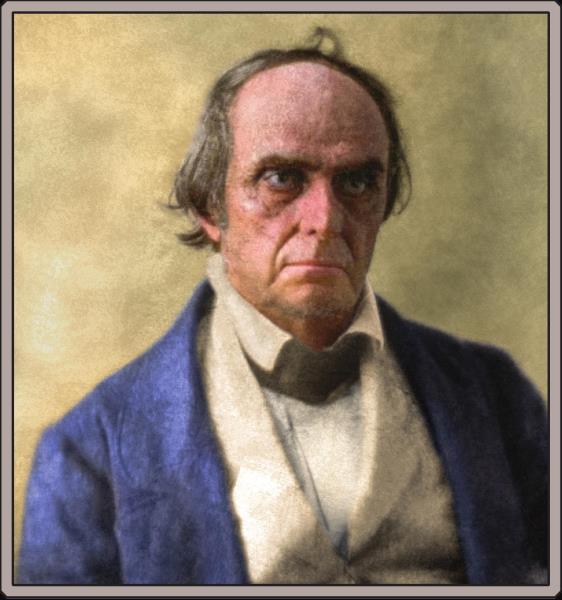 Class of 1801 Daniel Webster
Class of 1801 Daniel Webster
Amos Kendall (1789-1869)
- Adviser to President Andrew Jackson, U.S. postmaster general
- As postmaster from 1835 to 1840, improved mail delivery speed and rooted out corruption
- Looked the other way when postal officials in the South refused to deliver abolitionist literature, which he deemed “incendiary”
- Helped found Gallaudet University in Washington, D.C., to serve deaf students
“On the whole, if there is more extravagance, folly, and corruption anywhere in the world than in this city [Washington, D.C.], I do not wish to see that place.”
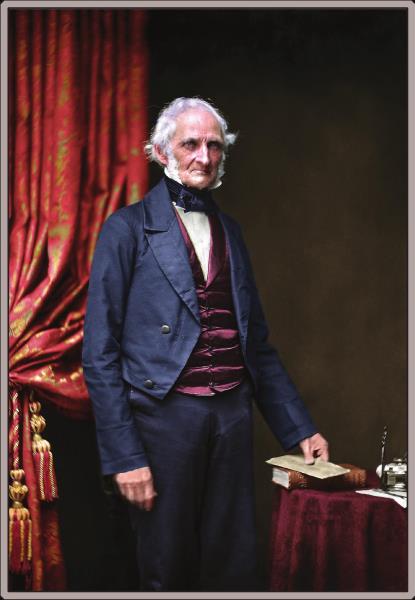 Class of 1811 Amos Kendall
Class of 1811 Amos Kendall
Thaddeus Stevens (1792-1868)
- Member of Congress
- Taught by John Wheelock, son of Dartmouth founder Eleazar Wheelock
- Chair of U.S. House Ways and Means Committee during Civil War, and Appropriations Committee during Reconstruction
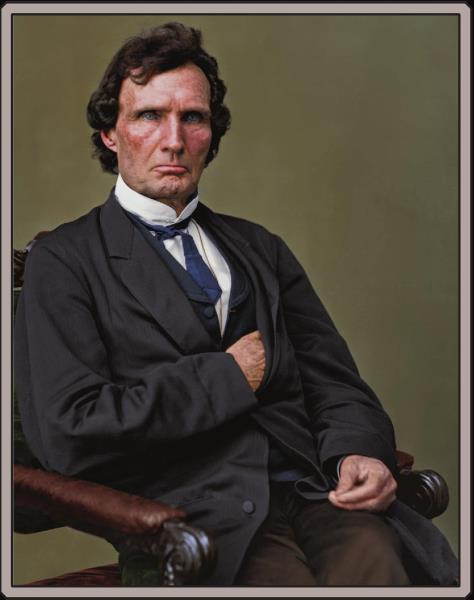 Class of 1814 Thaddeus Stevens
Class of 1814 Thaddeus Stevens
George Perkins Marsh (1801-1882)
- Environmentalist, diplomat, member of Congress
- A founding father of the environmental movement and early backer of the Smithsonian Institution
- Wrote Man and Nature (1864), which challenged the notion that humans had little impact on nature and warned of climate change
“Sight is a faculty; seeing, an art.”
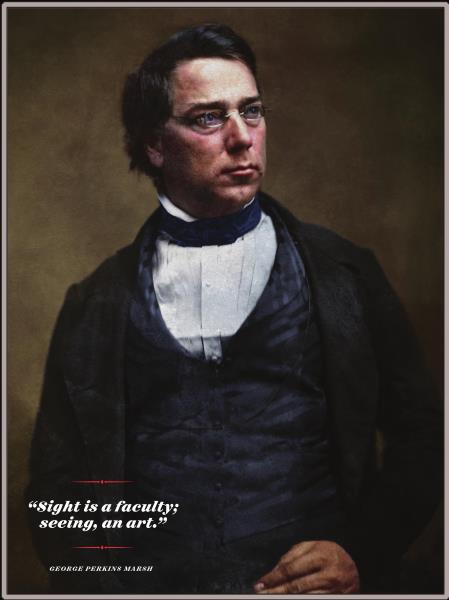 Class of 1820 George Perkins Marsh
Class of 1820 George Perkins Marsh
Salmon P. Chase (1808-1873)
- Chief justice of the U.S. Supreme Court, secretary of the U.S. Treasury, U.S. senator, governor of Ohio
- Helped create the national banking system and paper money
- Proponent of putting “In God We Trust” on coins
- Appeared on the $1 and $10,000 bill
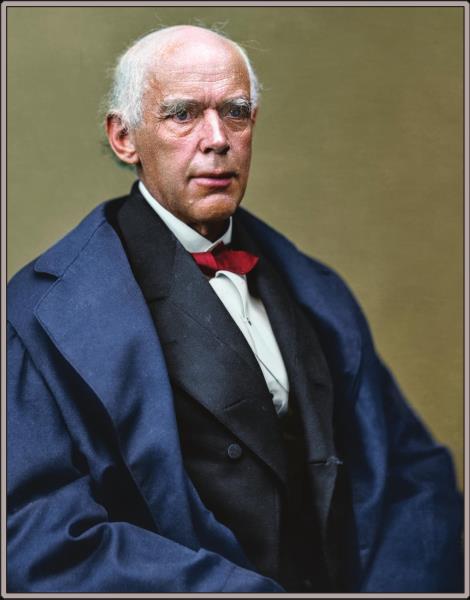 Class of 1826 Salmon P. Chase
Class of 1826 Salmon P. Chase
Daniel Clark (1809-1891)
- U.S. district court judge, U.S. senator, member of New Hampshire State Legislature
- In July 1861—three months after the Civil War started—sponsored a resolution to expel all Southern senators from their seats. It passed immediately
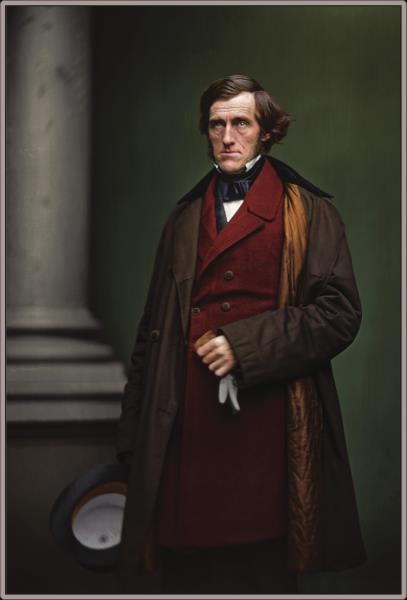 Class of 1834 Daniel Clark
Class of 1834 Daniel Clark
James Wilson Grimes (1816-1872)
- Introduced bill to create the Medal of Honor
- Established first agricultural journal in Iowa, The Iowa Farmer and Horticulturist
- U.S. senator, third governor of Iowa
“It is money that achieves success ... nowadays. Thank God, my political career ended with the beginning of this corrupt political era.”
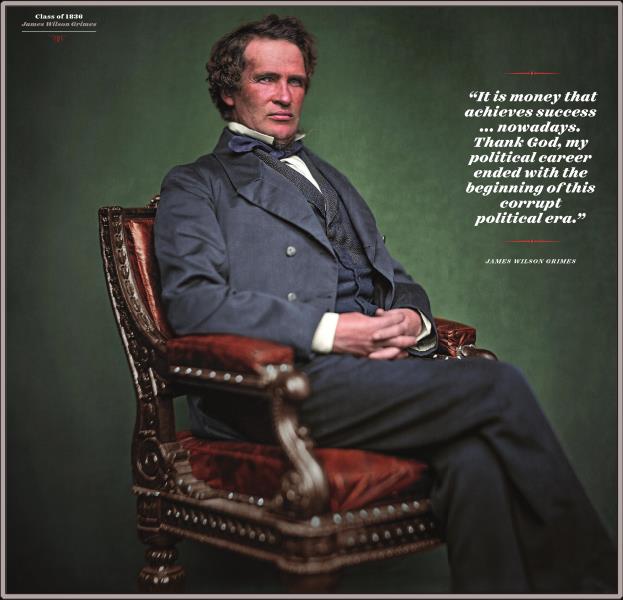 Class of 1836 James Wilson Grimes
Class of 1836 James Wilson Grimes
Gilman Marston (1811-1890)
- U.S. senator, member of Congress, U.S. Army colonel
- Saw initial combat during the First Battle of Bull Run in July 1861, where he was wounded in the arm
- Represented New Hampshire in Congress and appointed to the U.S. Senate in 1889
“If these doctors try to cut off my arm, shoot them. I want to sleep.”
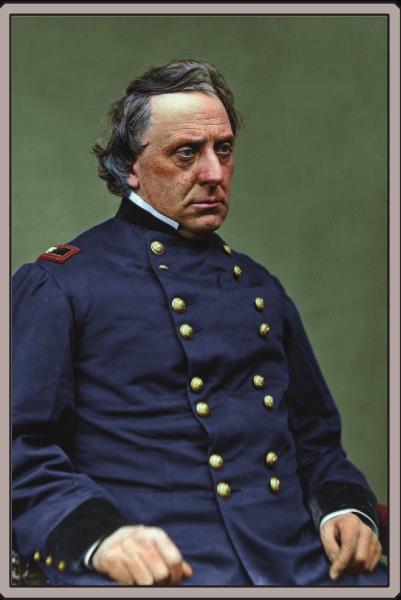 Class of 1837 Gilman Marston
Class of 1837 Gilman Marston
Amos Akerman (1821-1880)
- U.S. attorney general
- During Reconstruction, used an innovative litigation strategy to convict Klansmen of atrocities that local authorities ignored
- Worked with David Corbin, class of 1857, the U.S. district attorney for South Carolina
- Featured in March/April 2021 DAM article by Allan A. Ryan ’66
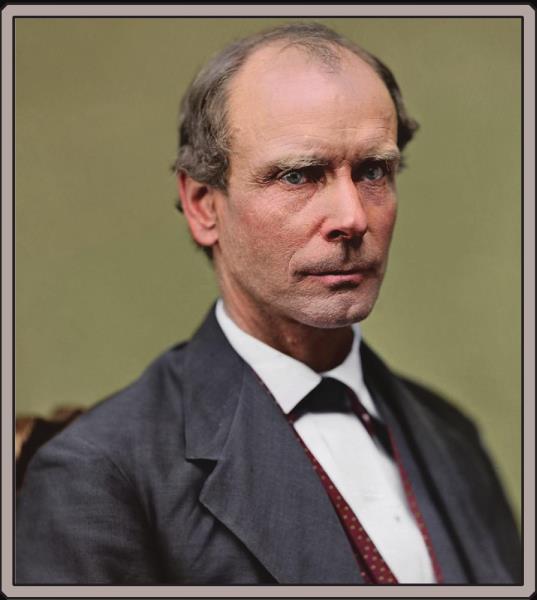 Class of 1842 Amos Akerman
Class of 1842 Amos Akerman
James Willis Patterson (1823-1893)
- Member of Congress, member of New Hampshire State Legislature, professor
- Taught mathematics, astronomy, meteorology, and oratory at Dartmouth
- Evaded punishment for involvement in 1872 Crédit Mobilier financial scandal when his term in Congress ended
“When power flows back into the hands of the people it only returns to its original and rightful source; but when it passes up into the hands of a usurper, the reign of despotism is inaugurated.”
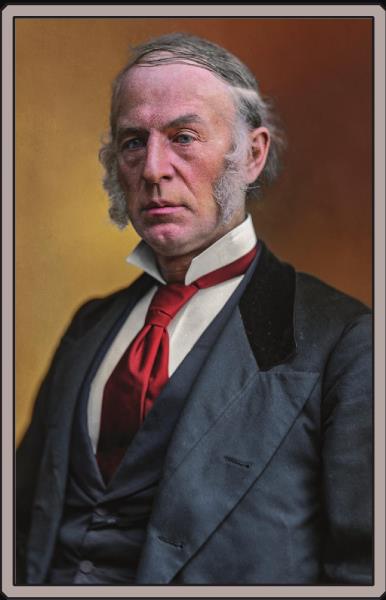 Class of 1848 James Willis Patterson
Class of 1848 James Willis Patterson
Compiled by Fatemah Ebrahim ’26, Joanna Jou ’26, and Leila Brady ’27.
Photographs from the Library of Congress and the U.S. National Archives; colorization by Sanna Dullaway
 View Full Issue
View Full Issue
More From This Issue
-
 FEATURES
FEATURESLife, Interrupted
MARCH | APRIL 2025 By RICHARD BABCOCK ’69 -
 PERSONAL HISTORY
PERSONAL HISTORYPaddle Tales
MARCH | APRIL 2025 By KIRA PARRISH-PENNY ’24 -
 FEATURES
FEATURESLost Species
MARCH | APRIL 2025 By JACK BUSHONG ’25 -
 UNDYING
UNDYING“His Noble and Independent Course”
MARCH | APRIL 2025 By SUE SHOCK -
 STUDENT LIFE
STUDENT LIFEResidential Briefing
MARCH | APRIL 2025
Features
-
 Feature
FeatureBeyond Independence: Creativity
November 1957 -
 Feature
FeatureCleanup Pitcher
MAY 2000 By Charles Wheelan ’88 -
 Feature
FeatureMovie Producer
DECEMBER 1969 By HAROLD BRAMAN '21 -
 Feature
FeatureThe Singing of the Cider
OCT. 1977 By Sanborn Brown -
 Cover Story
Cover StoryFather In Law
Nov/Dec 2000 By SARAH JACKSON-HAN ’88 -
 Feature
FeatureSome People Are Good Skiers
February 1975 By V.F.Z.








